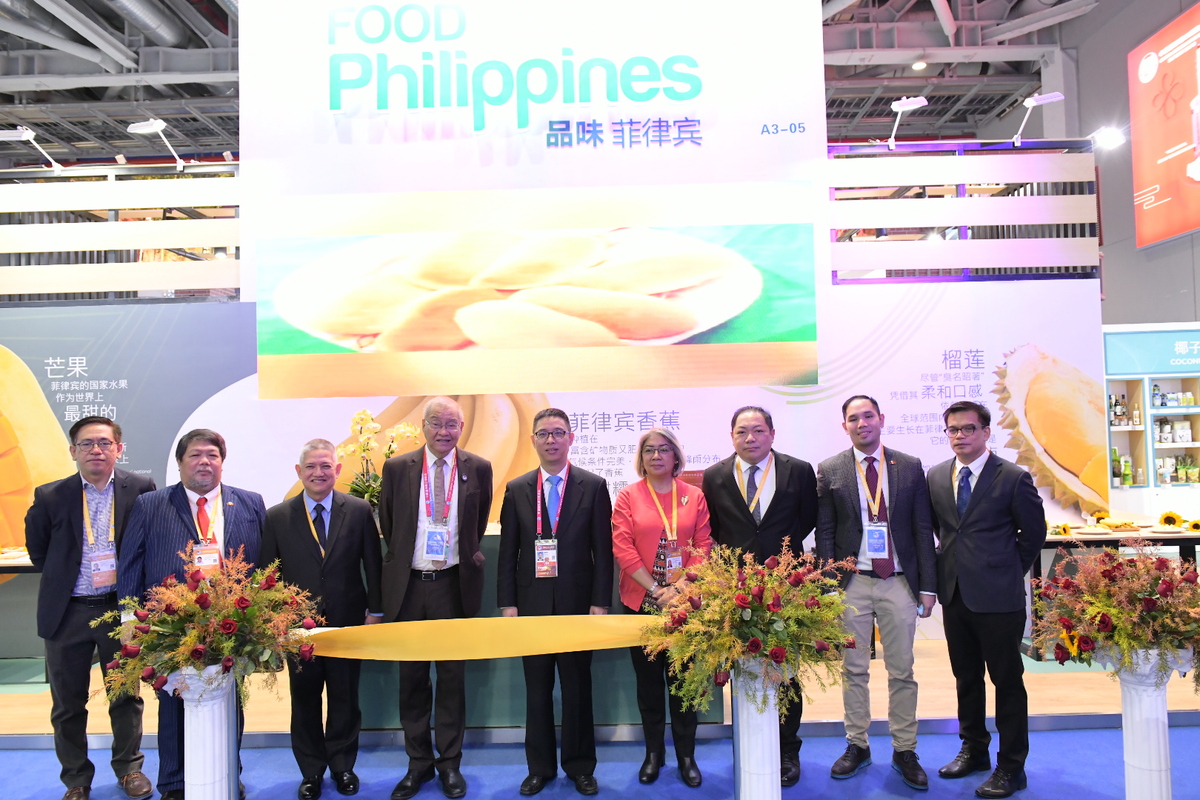Philippines tickle taste buds at CIIE


Although the largest export from the Philippines are electronic parts and products, the tropical country in Southeastern Asia chose to highlight its fresh food and agricultural products at the ongoing China International Import Expo in Shanghai.
"For the past two editions of the CIIE, we brought products of home decorations, lifestyle, fashion and food," said Jose Santiago L. Sta. Romana, ambassador of the Philippines to China, Mongolia and the Democratic People's Republic of Korea, on Friday. "We noticed that the biggest demand was for agricultural and food products, tropical fruits such as fresh bananas, mangos and pineapples."
Last year the Philippines recorded around $162 million export sales from the 32 participating food exhibitors at the CIIE.
This year despite the travel difficulties caused by the pandemic, 40 food brands and agricultural products are showcased in the Philippines' pavilion, and the ambassador said in the time of pandemic, the demand for healthy lifestyle and healthy, organic, natural food is going even stronger, as part of people's effort to build up their immune system to resist against the virus.
The CIIE has been a very good platform for entering the Chinese market, said Sta Romana. "You have 400 million middle-class consumers, all demanding healthy natural food. We may not be able to satisfy everybody!"
Last year alone, the Philippines exported more than $600 million worth of Cavandish bananas to China, said the ambassador. China imported almost $1 billion food products from the Philippines altogether in 2019.
The Philippines decided to leverage its unique advantage of geography, climate and closeness to China, the largest population of middle-class consumers, at the CIIE, the ambassador told China Daily in an exclusive interview. "The timing is good; the experience is for good."
The Philippines is the largest exporter of high-quality Cavandish bananas to China, and its many varieties of mangoes are gaining popularity in China's big city malls such as in Beijing and Shanghai. The Philippines grow such good mangoes that the Guinness World record listed the Philippine mango Zambale as the sweetest mango in the world in 1995, the ambassador said. Also, as coconut water becomes popular among urban consumers in China, young coconuts from the Philippines are making their way into the Chinese food shelves and fridges.
"We hope in the future we will go up the value chain and introduce more processed products, such as what we are showing at the CIIE, like banana chips and virgin coconut oil, good for not only cooking but also for skincare."




































